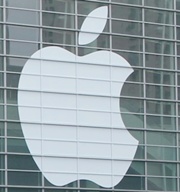Apple to start paying Ireland €13 billion in unpaid taxes
05 Dec 2017
Apple today reached an agreement with the European Union (EU) to pay €13 billion ($15.4 billion) to Ireland in unpaid taxes, following the landmark decision by the European regulator to crack down on companies parking their profits in low-tax havens in Europe.
 Apple will have to start putting the money in an escrow account starting in the first quarter of 2018 while the appeal is still pending before the European Court of Justice.
Apple will have to start putting the money in an escrow account starting in the first quarter of 2018 while the appeal is still pending before the European Court of Justice.
Ireland will comply with its obligation to recover the back taxes and keep the money in an account managed by a third party, Irish finance minister Paschal Donohoe yesterday said, ahead of a meeting with the head of European Commission (EC) Margrethe Vestager.
The EC had accused Ireland in 2014 of dodging international tax rules by letting Apple shelter profits worth tens of billions of dollars from tax collectors in return for maintaining jobs.
The EC had last year ruled that a tax deal that Ireland gave Apple was illegal, and that it owed the country $14.5 billion in back taxes.
Ireland's tax treatment has allowed Apple to avoid tax on tens of billions of dollars of non-US profit. Over the past 10 years, the company has paid tax at a rate of 3.8 per cent on $200 billion of overseas profits, filings show. This is a fraction of the tax rate in the countries where Apple's products are designed, made and sold.
The EC's investigation concluded that Ireland granted illegal tax benefits to Apple, which enabled it to pay substantially less tax than other businesses over many years. In fact, this selective treatment allowed Apple to pay an effective corporate tax rate of 1 per cent on its European profits in 2003 down to 0.005 per cent in 2014.
The low rate is achieved by Apple telling US tax authorities that the profits are earned by Irish units, while it tells Ireland the profits are not earned in Ireland.
Some lawmakers in the US and in countries where Apple has large sales have criticized the arrangement.
Ireland says if it's not fair, it's other countries' fault for not closing loopholes. Ireland has accused the Commission of exceeding its powers and interfering with EU member states' national sovereignty over tax affairs.
EC's decision concerned two companies in the Apple group - Apple Sales International and Apple Operations Europe. Both are incorporated in Ireland and have been set up by Apple to record profits there. Their ultimate parent is Apple Inc. in the US.
Apple Sales International, accounts for almost all of the unpaid taxes since it holds the right to use Apple's intellectual property to sell and manufacture Apple products outside North and South America. In exchange of this right, it makes payments to Apple in the US to contribute to the development of this intellectual property – often more than $2 billion dollars annually.
In practice, Apple Sales International buys Apple products from their manufacturers. It sells these products throughout Europe, as well as in the Middle East, Africa and India. And then records all sales in Ireland.
No matter where one buys an iPhone at the Apple Store in Berlin, Rome or elsewhere in these regions, contractually one buys it from Apple Sales International in Cork in Ireland. This is how Apple decided to set it up and all profits coming from those sales are recorded in Ireland.
That arrangement, however, is not a matter for state aid rules as Ireland was claiming, the EC had then said.
Apple Operations Europe makes certain Apple computers in Ireland. Under the same two tax rulings, the majority of its profits were also artificially allocated to a "head office" that only existed on paper, and whose profits were not taxed.
The Irish branch was subject to the normal Irish corporation tax. However, the head office was neither subject to tax in Ireland nor anywhere else. This was possible under the Irish tax law, which until 2013 allowed for so called 'Stateless companies'.
As a result of the allocation method endorsed in the tax rulings only a fraction of Apple Sales International's profits were attributed to its Irish branch. The remaining, vast majority of profits were attributed to its "head office".
Citing an example of taxes paid by Apple in 2011, Apple Sales International made profits of €16 billion. Less than €50 million were allocated to the Irish branch. All the rest was allocated to the "head office", where they remained untaxed.
This means that Apple's effective tax rate in 2011 was 0.05 per cent or to explain in simple terms - every €1 million in profit, Apple paid just €500 in tax.
This effective tax rate dropped further to as little as 0.005 per cent in 2014, which means less than €50 in tax for every million euro in profit.


















